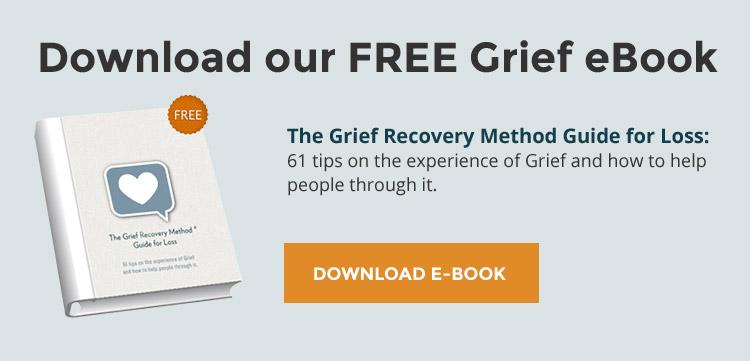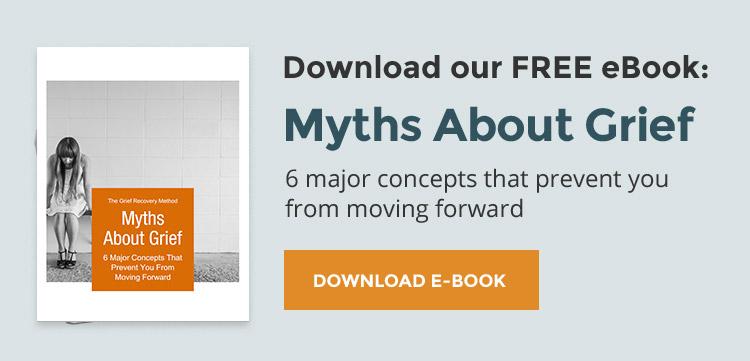
Many people think about October as National Breast Cancer Awareness Month. There was a time that this subject was rarely addressed in public. It was not until First Lady Betty Ford publicly announced that her diagnosis with this disease that was brought out of the shadows on a national scale. She dealt with her personal grief and treatment in front of the entire world and made is safe for others to do so as well.
October, however, is not just the month for bringing attention to breast cancer.
President Ronald Reagan established October as National Pregnancy and Infant Loss Awareness month in 1988. At the time he said: “When a child loses his parent, they are called an orphan. When a spouse loses her or his partner, they are called a widow or widower. When parents lose their child, there isn't a word to describe them. This month recognizes the loss so many parents experience across the United States and around the world. It is also meant to inform and provide resources for parents who have lost children due to miscarriage, ectopic pregnancy, molar pregnancy, stillbirths, birth defects, SIDS, and other causes.”
Most people have no idea that October has been designated for this remembrance or that October 15th is Pregnancy and Infant Loss Awareness Day. This is not just the case for the general public, but also those who have with this issue first hand.
In truth, for those who have lost a child, either prior to birth or within the first year afterward, every day is a reminder of that child not being a living member of their family. Their grief is often borne silently, just as the grief of those suffering from breast cancer once was.
The number of people who face this loss are staggering! The American College of Pediatricians noted the statistics from the U.S. Department of Health and Human Services earlier this year:
- 1,000,00 pregnancies end with the loss of a baby through miscarriage or stillbirth each year.
- 24,000 infants die each year in infancy.
Each of these deaths creates multiple grievers. It is not just the parents who are impacted. The grandparents, siblings of that child and other family members grieve the loss as well, along with close family friends.
The American College of Pediatricians point out what we have long known at The Grief Recovery Institute, that this silent suffering can continue for years or even decades, and that all too often these grievers receive little or no support to help them deal with this emotional pain.
The things people say, that are often emotionally painful
Friends and other family members may think that they are being supportive, but all too often, the things that they say come off as intellectual comments rather than emotionally sensitive ones. Some things that they say are often more hurtful to these grievers’ hearts, rather than helpful. Typical comments include:
- You can always have another child
- At least it happened early
- God needed another angel in Heaven
- Next time will be better
- At least you have other children
- I know how you feel
- Grief just takes time
Ask any parent who has lost a child if any of these comments made them feel better. Most, if not all, will answer with a resounding “NO!” No child is “replaceable,” so the idea that they might have another child does little or nothing to relieve the pain of losing this one!
People never intentionally mean to say hurtful things to grievers! The problem is that very few of us have ever been educated as to “the right thing to say” in this situation or any other grief causing event.
Sadly as well, others that are worried about saying “the wrong thing,” often say nothing at all. This can leave these grievers feeling that their deep emotional loss is not even recognized as being important or painful.
The emotional pain of this or any other loss does not go away with time
As was noted above, we often hear people say that “Grief just takes time.” It would be wonderful if this was the case or that there was a time table to grief. Unfortunately, this is not true. What happens with the passage of time is that we just become accustomed to carrying around that emotional pain deep inside. We “silently suffer,” because no one is there to offer us an effective way to deal with it!
While there are any number of “support groups” that you might find in your community or online, many of them support you in expressing your pain, but offer few, if any, assistance in helping you to take effective action to moving out from under the cloud it has cast over your life.

How can you take action to make this Remembrance Day a step to a better tomorrow?
If you are suffering the pain of having lost a child, check to see if there is a Grief Recovery Method Support Group in your area. Unlike most other support groups, this program offers a truly effective action plan for emotional recovery. It is not about forgetting your loss, which you will never do, but rather teaching you the necessary tools to deal with the pain in your heart!
John W. James, the creator of this program, lost his first son within days of his birth and struggled with his own grief after that loss. Rather than just giving in to that pain and carrying it with him for the rest of his life, he searched until he found a recovery solution that actually worked. What he discovered was a way to say “goodbye” to the dreams and expectations he had for the life of his child, without letting go of the joy these dreams had brought to his heart.
You can find a link to those offering this approach, either in an 8-week format, a 2-day personal workshop or on-line at https://www.griefrecoverymethod.com/our-programs
If you really want to make a difference for yourself and others, please consider becoming a Grief Recovery Method Specialist, Certified by The Grief Recovery Institute. This intensive training program is open to anyone. During the training, you will not only have the opportunity to take recovery action for yourself but will be taught how to lead others through this process. This action plan has been utilized for more than 40 years worldwide and is the only support program that has been shown to be evidence-based in a university study!.

What is the best thing you can say to a griever in the meantime?
Perhaps the best thing to say in this, or any other grief-related situation is simply, “I cannot begin to imagine how you are feeling at this moment, but I am here to listen if you would like to talk about it.” If you have experienced a similar loss, you might add that you remember what it felt like to you, when you were in this situation, but you want to understand just what it is that they are feeling, After that, just listen without analysis, criticism or judgment and realize that there is nothing that you can say that will “fix” the situation and make it better!
The simplest way to be supportive is to reach out to anyone you know who has suffered such a loss and let them know that you are thinking about them and really care!
Here are a few other articles that you might find helpful to you:
A Guide To Dealing With Post-Partum Grief-Related Issues
Get Over It! (and other bits of unhelpful advice)
You may also find one of our free eBooks helpful

Photo Credit: 123RF Stock Photo

























Add new comment